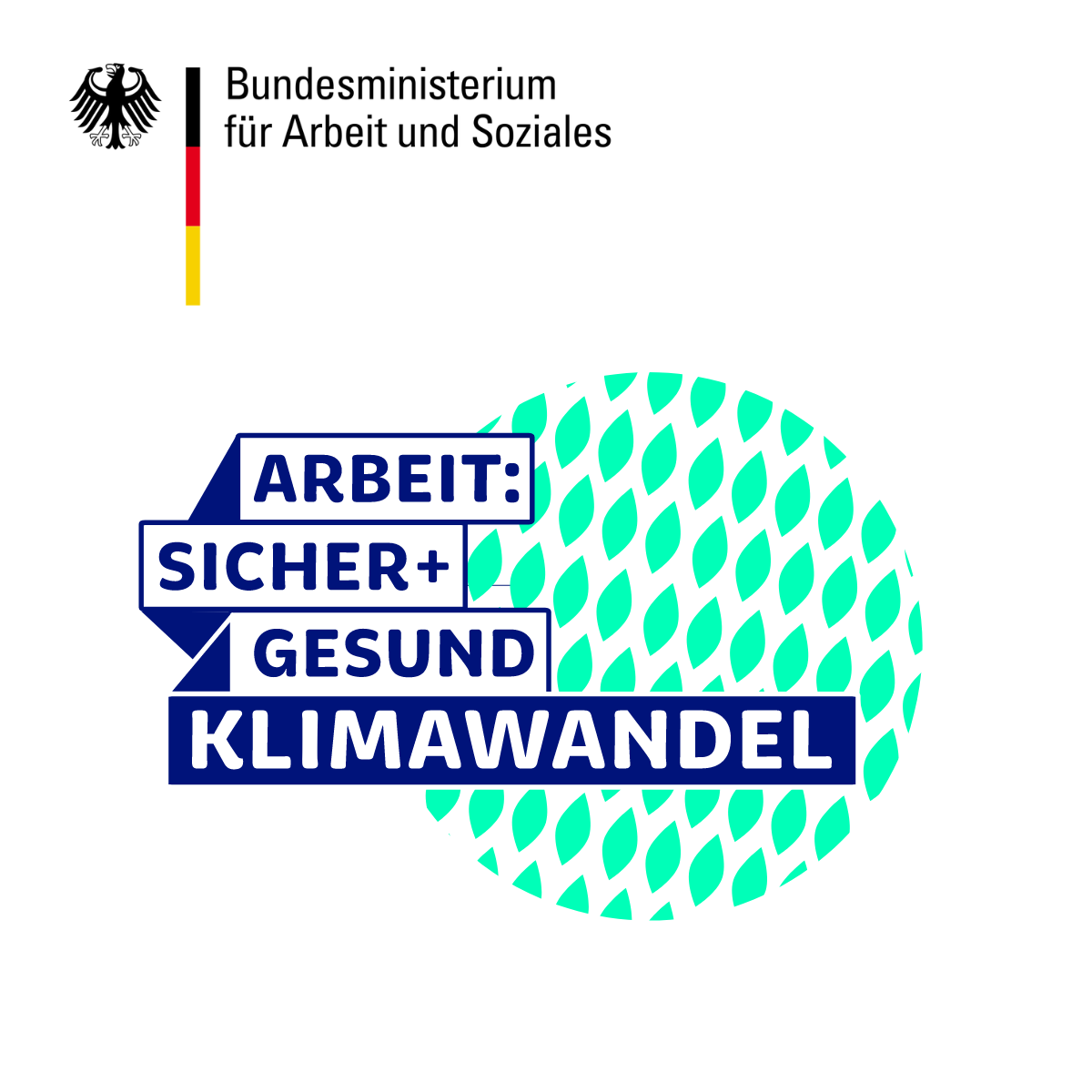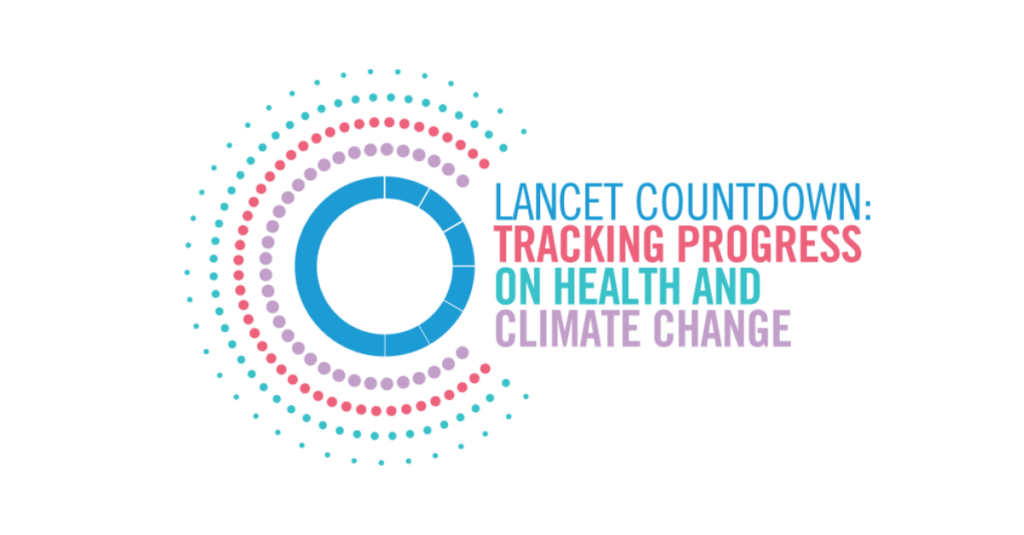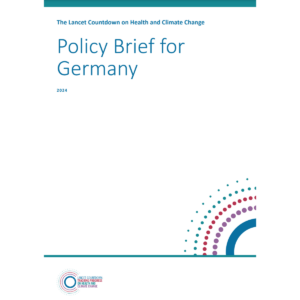Governance for health within planetary boundaries
Planetary health policies systematically consider their impact on both human health and natural ecosystems equally. Furthermore, the concept promotes political decision-making that aims to minimise harm to people and planet. A planetary health in all policies (PHiaP) approach extends the concept of health in all policies, an approach to public policies that systematically takes into account the health implications of political decisions and seeks to avoid harmful health impacts in order to improve population health and health equity. PHiaP adds the notion that all policy decisions should be taken with a view to enabling societies to remain within safe ecological limits, also known as the nine planetary boundaries. A PHiAP approach can enable both planet and people to thrive within planetary boundaries.

Many of the determinants of health and health inequities in populations have social, environmental, and economic origins that extend beyond the direct influence of the health sector and health policies. Planetary health policy builds on intersectoral policy aims, based on health in all policies that improve the social determinants of health, while explicitly addressing the ecological degradation of the planet that threatens its habitability which ultimately determines human health and survival.
Outcomes of this workstream will include conceptual and operational analyses and policy recommendations for the German political context, e.g. in the domain of energy, agricultural and labour market transitions.
Read more in our analyses
Projects

ARBEIT: SICHER + GESUND Safe and healthy work in a changing climate
Climate change is transforming the world of work. Increasing heat, extreme weather events, as well as physical and psychological stress present challenges for employees and leaders alike. In the BMAS-funded project “ARBEIT: SICHER + GESUND Safe an healthy work in a changing climate (ASUG-Klima),” the CPHP, together with a consortium of scientists, policy advisors, and communication experts, is investigating which occupational groups are particularly affected and developing solutions for climate- and human-friendly, safe working environments.
Besides this project and on behalf of the BMAS, the CPHP conducted a workshop in June 2023 focusing on the effects of increasing heat on the workplace. The aim was to present and discuss practical heat protection measures with occupational health and safety experts.
In 2022, the CPHP has prepared an expert report on “Climate Change and Health in the Workplace” on behalf of the BMAS.
» More about the project (in german)


Lancet Countdown annual report launch — Germany
In addition to the annual publication of the Lancet Countdown reports, national initiatives have increasingly emerged to present the key findings of the global report, place them in the local context and formulate adapted recommendations for policy makers in the respective country. Since 2022, the German initiative has been coordinated by the Center for Planetary Health Policy (CPHP).


Policy analysis of the development and implementation of national portfolios of action on environment and health
On behalf of the European Centre for Environment and Health of the World Health Organization (WHO ECEH), CPHP has analyzed the national portfolios of the WHO European countries in preparation for the Ministerial Conference on Environment and Health (July 2023 in Budapest). To this end, the CPHP scientists carried out a desk review and expert consultations in the member states, prepared case studies with best practice examples and discussed these with WHO representatives.
Assigned by

Climate Change and Health: Status Report & Expert Discussions
On behalf of the Robert Koch Institute (RKI), CPHP supported the creation and dissemination of the RKI status report “Climate Change and Health.” The goal was to render the report’s findings actionable for decision-makers in politics and healthcare, while also communicating the results to a broad audience. Additionally, on behalf of the RKI, CPHP produced an evidence synthesis on the effects of the climate crisis on global health protection.
In September 2023, CPHP, in cooperation with the Climate Change and Health Office at the Robert Koch Institute and the Federal Center for Health Education (BZgA), organized three virtual expert discussions on the findings of the report.
» More about the project (in german)


Public Health OperatioNs for clImate change aCtion (PHONIC) — Development of a framework to identify priority operations
The Public Health OperatioNs for clImate change aCtion (PHONIC) project is funded by the German Federal Ministry of Education and Research (BMBF) as part of the German Alliance for Global Health (GLOHRA). The CPHP is developing a framework to identify priority measures for public health in the context of climate change mitigation and adaptation. An action guide with concrete indicators and examples of good practice is also to be developed for priority areas, which will then be piloted in Germany and Kenya.


AirHealth: Strengthening Germany’s air quality policy to protect public health
With the revision of the Air Quality Directive, the European Union is partially aligning the legal framework and standards for air quality in its member states with the new evidence-based recommendations of the WHO. In this context, the CPHP analyses the ecological and economic added value of health-protective air quality standards and organizes expert discussions with political decision-makers and experts. The aim is to analyze Germany’s role in the European negotiations and to advance the political and public debate in Germany. The project is funded by the Clean Air Fund.


Mapping the stakeholder landscape in the field of climate change and health in Germany
Together with the Wellcome Trust, the CPHP is mapping the German stakeholder landscape in the field of climate change and health, particularly in preparation for important international events in 2023, such as the World Health Summit (WHS) and the UN Climate Change Conference (COP28). The project aims to draw a picture of the current political debates in this field of action and to enter into discussions with the relevant and influential actors.




